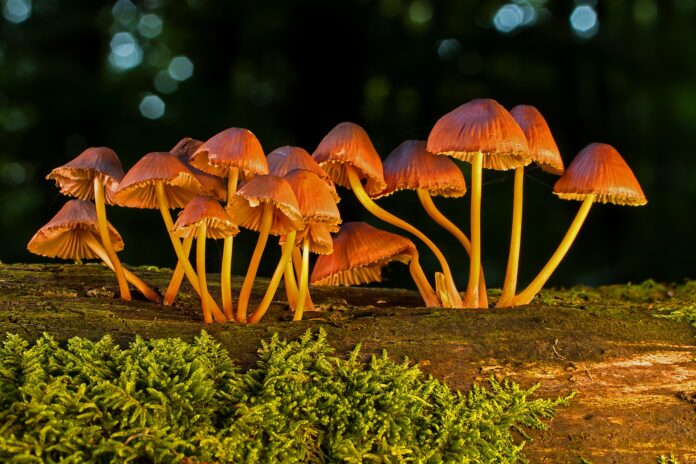Microdosing in the world of psychedelics has almost become a mental norm for people looking to expand their mind and heal their negative egos. According to a University of Toronto Mississauga team of researchers, they believed they have “uncovered high potential research avenues” for examing benefits and disadvantages of microdosing with the psychedelic elements LSD (lysergic acid diethylamide) and psilocybin (the main ingredient in magic mushrooms).
The study, published recently in the Harm Reduction Journal, discovered that people who took tiny amounts of psychedelic substances frequently report improved moods and focus, along with worries of illegality and stigma. That is changing in states across the united states.
The term microdosing is defined as the practice of regularly ingesting small,non-hallucinogenic quantities of psychedelic substances. According to The National Post, the trend began back in 2010 when biohackers started seeking a competitive advantage.
Thomas Anderson, a Ph.D. student and cognitive neuroscientist, Associate Professor of psychology Norman Farb, Rotem Petranker from York University, and scientist from the U of T Faculty of Medicine and U of T Scarborough, are among the first team of scientist to research the effects of micro-dosing in a scientifically controlled environment.
“The most common benefit was improved mood, which suggests that researching micro-dosing as a potential pharmacotherapeutic treatment for depression could be worthwhile,” Anderson highlights. “Microdosing could provide a possible alternative to SSRIs [selective serotonin reuptake inhibitors, a class of drugs commonly used to fight depression], which are great but don’t work for everyone.”
“Microdosing won’t work for everyone, either, but it could provide a possible alternative to other treatment pathways.”
People who participated in the study, reported improved creativity, including divergent thinking, curiosity, and openness. Previous studies have also confirmed the effects of enhanced creativity, Anderson and colleagues report that microdoses seemed to be more open and less neurotic and dysfunctional.
Anderson and colleagues rounded up over 300 self-identified microdoses and have recovered the improvements into different categories. According to the paper, the top categories were: increased happy mood (27 percent of reports), focus (15 percent), creativity (13 percent), and self-efficacy (11 percent). The authors note that the mood not only refers to happiness and well-being but also helps reduce depression.
However, the participants noted that the top challenges with microdosing were the physiological discomfort and concerns about illegality. The pain included headaches, nausea, and insomnia. Many people who microdose regularly find it hard to obtain consistent batches, and have a hard time identifying the purity of the substances.
Anderson claims, the stigma surrounding the legality of the substances was also a big concern. “Many people are relatively accepting of psychedelics privately, but the same people can incorrectly believe that others are not so accepting and so they think there are lots of stigmas when there isn’t. We’ve had academics come out of the woodwork to support us—we have not heard from anyone that’s actually against the responsible scientific study of these substances,” he added.
The team of researchers stresses that the study makes no casual claims and that the paper only displays the experiences of people associated in microdosing.
“Scientifically speaking, we don’t know if microdosing does anything at all,” announced Anderson, stating the goal of the paper was to provide a foundation for future research. The team hopes future studies will reveal the actual effectiveness behind the trend, along with gathering funding which can be invested in studying the promising uses of micro-dosing.
“Ultimately, pre-registered randomized placebo-controlled trials (RCTs) of microdosing psychedelics are needed to test its safety and efficacy,” concluded the author’s message.
The Recover is an unbiased substance abuse and mental health news provider. Helping individuals looking for the right treatment programs in their area. Also providing information on drug rehab centers for addiction recovery.
Contact: Kennedy Adams
Company: The Recover
Address: Huntington Beach, CA
Contact Number: (888) 510-3898
Email: [email protected]
Website: www.therecover.com




